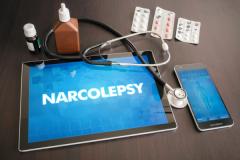
Long-Term Management and Improving Access to Newer Treatments in Narcolepsy
Panelists discuss the importance of building a flexible, trusting long-term relationship with regular, personalized follow-ups that actively explore patient challenges and adapt treatment as life changes occur, while emphasizing persistence in overcoming insurance barriers, the benefits of telehealth for access, and the critical role of psychosocial support including education and cognitive behavioral therapy (CBT) to help patients manage narcolepsy’s impact on daily life.
Episodes in this series

Long-term management of narcolepsy revolves around establishing an ongoing, trusting relationship with regular follow-up visits tailored to the patient’s medication regimen and life circumstances. Frequent reassessment is critical—not just checking if the patient is “doing okay,” but actively asking questions like, “What could be better?” or “How is narcolepsy holding you back?” This encourages patients to express challenges and enables timely adjustments in therapy or accommodations, ensuring the treatment evolves with their needs.
The clinician highlights the importance of flexibility, recognizing that as patients age, change jobs, or have other life events, their treatment and support systems must adapt. Asking patients what they would wish for if they had a magic wand helps reveal deeper concerns and priorities, fostering partnership and shared decision-making.
Regarding access to newer narcolepsy medications, insurance barriers remain a significant challenge. Many insurers impose step therapy protocols or delays before approving newer drugs. Clinicians often spend considerable unpaid time navigating prior authorizations, which can discourage prescribing these medications. Despite this, providers emphasize persistence and encouraging patients to advocate for their needs, empowering them not to shy away from being “the problem child” when securing necessary treatment.
Telehealth has been a major positive development, improving access for patients who struggle with travel or work constraints. It enables more frequent, convenient follow-ups, which are essential for managing a chronic condition like narcolepsy.
Finally, psychosocial support is crucial. Many patients face misunderstandings from family or employers about narcolepsy’s severe, persistent fatigue. Educating patients’ support systems, connecting patients with peer groups, and providing CBT tailored to chronic hypersomnia help patients cope with day-to-day limitations and maintain quality of life.
Newsletter
Receive trusted psychiatric news, expert analysis, and clinical insights — subscribe today to support your practice and your patients.






